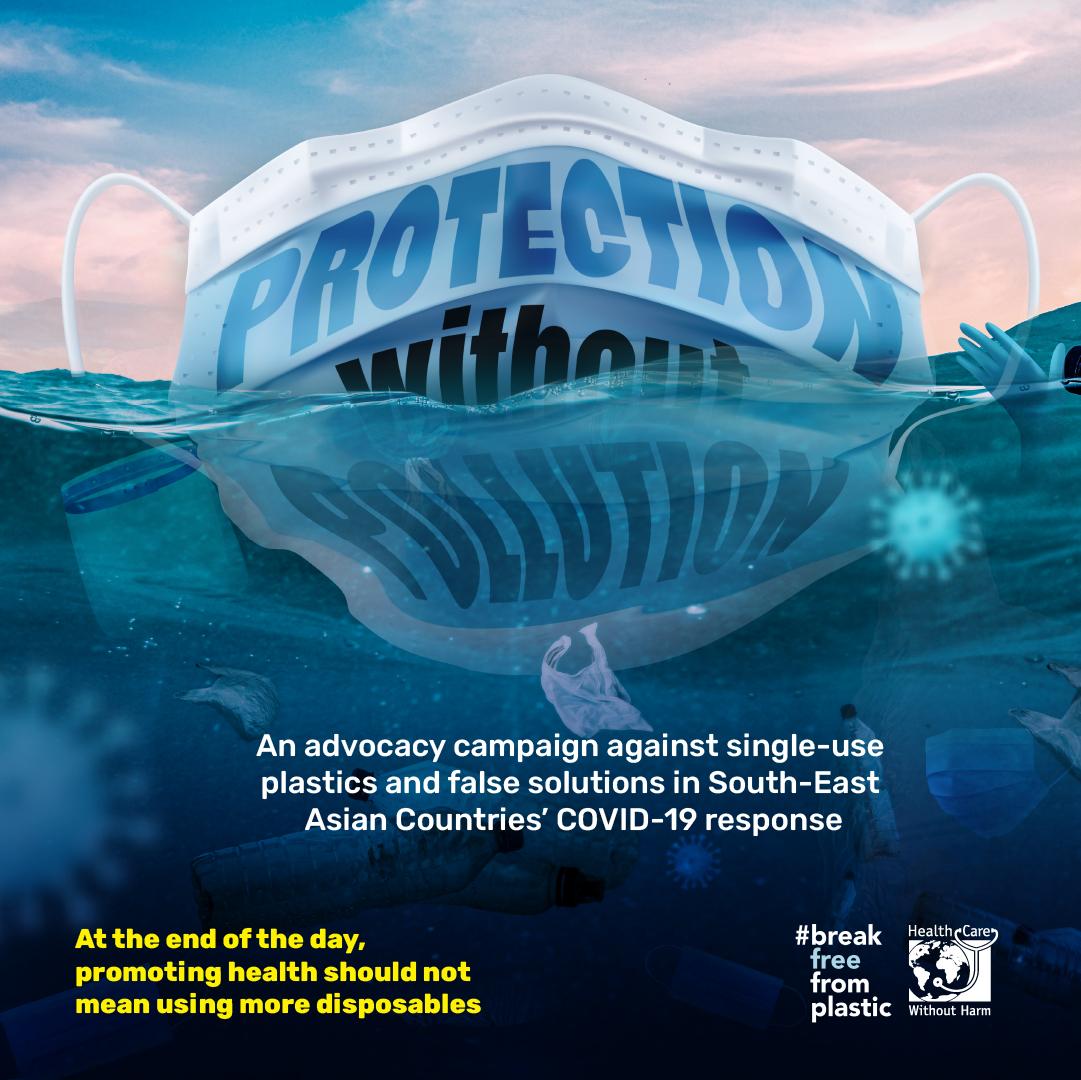The Covid-19 pandemic has not only presented to us the numerous vulnerabilities within our healthcare system, public health emergency response, waste management, governance, and communities.

It has most especially highlighted that our health and safety (including the planet’s) depend on sustainable and equitable policies and environmental justice. In fact, waste became one of the defining images of the pandemic. A surge in face masks, gloves and other personal protective equipment has overwhelmed our communities, households and our hospitals. It hampered efforts on sustainable waste management and in an instant pulled people back to using disposables, due to fear and misinformation.
Nevertheless, WHO advises that any system implementing best practices for infectious waste will also be able to safely manage waste potentially infected with SARS-CoV-2 (the official name for this particular coronavirus which causes the disease known as COVID-19). Therefore, soap and water to disinfect is safe enough than relapsing back into disposables.
In terms of COVID-19 related waste management at the community level, here are some snippets from our Partner organizations:
In Bangladesh, the waste disposal system is very problematic and wastes are not being segregated initially and everything is going directly to the landfill for incineration. While the waste audit was done by our BFFP partner organization, waste collectors are generally collecting hazardous covid medical waste with other waste and most of them do not even wear safety kits while handling this. Unfortunately, most of the hospitals and institutes do not have an official rule book or policy for maintaining covid waste disposal or management so no one can accuse them of their wrongful work. The most neglected community or sector is the informal waste workers. They do not get enough support from the authorities to maintain their health safety while handling all this waste which makes this situation worse.
While in Sri Lanka, most of the households in the community purchase their own PPEs. They use a few types; disposable surgical masks, reusable K95 face masks, disposable gloves, and reusable cloth masks. There is a waste collection method that is followed by the urban council and Waste is collected four times every month. Used facemasks are being burned in the home backyard. Also, they use few types of disposal methods, such as: handover to waste collectors, reuse those that can be reused, burn waste, waste segregation, and recycle. But there is no special waste collection method for Covid-related wastes, and there is no sufficient information about Covid-related waste management
Covid-19 related waste must not be incinerated or dumped in landfills, it needs to be treated safely to reduce its impact on the environment and human health. Both the World Health Organization and the United Nations Environment Program (UNEP) have endorsed steam-based or other non-incineration methods of disinfection over incineration because of the persistent organic pollutants (POPs) produced by incineration. Furthermore, incineration is also a great deal more expensive than steam-based technologies and also has a higher carbon footprint.
At the end of the day, promoting health does not require more disposables. Rather, it requires wise utilization of resources and upholding best practices that minimize the impact of waste pollution while ensuring protection.
Now, as we begin to chart the course towards recovery from COVID-19, the voice of health professionals and community members are critical in showcasing how and urging local and national governments and agencies to set up ecological and more sustainable waste management systems, implement stronger policies against problematic single-use plastics and invest in a zero-waste future in order to protect public health and the environment.
CALLS AND DOWNLOADABLE MATERIALS HERE
#ProtectionWithoutPollution is Health Care Without Harm's global initiative on Covid-19 waste reduction strategies. Its principles are carried over into this collaborative campaign to reiterate that there is no place for business-as-usual if we are going to recover safely from this pandemic. Covid-19 must not be used to aggravate the plastic production crisis that unfailingly harms the people's health and destroys the planet.
Event Details
Region
Southeast Asia